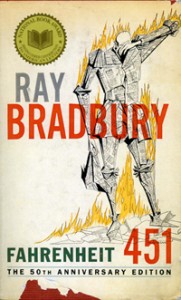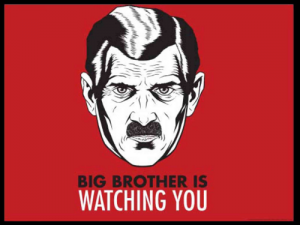Introduction
As usual, we will start off by looking at some sample essay topics. Bear these in mind as you read the book.
♠
Introductory Tasks
To understand ‘1984’ thoroughly it is vital to understand the world in which Orwell was writing (and was writing about). Research Orwell, and also the times in which he lived. As a start, have a look at the following documents to gain some understanding of the background to the book, and the themes that Orwell was concerned with.
Use the knowledge you have gained to answer these questions ready for class discussion.
Here is a character map for your use as you read the book.
If you have not yet done so, it is highly recommended that you read Orwell’s ‘Animal Farm’. It’s a fable, less than 100 pages in length, was written just before ‘1984’ after the same historical events, and deals with similar themes: if ‘1984’ shows what life would be (is) like in a totalitarian state, ‘Animal Farm’ shows how such a state comes into being and then sustains itself.
Click on the image here to read ‘Animal Farm’.
Finally, here is a brilliant essay by Margaret Atwood, author of ‘The Handmaid’s Tale’; it contains interesting insights into ‘1984’ and ‘Brave New World’, and gives hints as to why Atwood chose to write a dystopia herself.
‘Orwell and Me’ by Margaret Atwood
♣
Reading Tasks
As you read the book, use the worksheets below to gather knowledge together about the book the its themes as they are played through the characters, what they say and the events that occur.
1984 features a love story of sorts. Trace its developments here, and reflect on how it compares to other love stories / romances that you have read or seen on film.
O’Brian represents the Party, or does he? Trace the development of his relationship with Winston as the novel develops.
One of the most demanding aspects of ‘1984’ is its new language. The document below contains a summary of Orwell’s own explanation of ‘Newspeak’ in the appendix. Practice it yourself to see how it feels: liberating or limiting?
The adjective ‘Orwellian’ is often used to describe various aspects of the world we live in today. Read the document below and discuss how it relates to ‘1984’.
And this article was written after the start of the Iraq War, the reporting of which we have already looked at in Unit 2. What similarities can you find with Orwell’s world of ‘1984’?
Finally, here are some famous quotations from the book (some of these are so famous that many people use them without even knowing where they come from). Be prepared to present your thoughts about a selection of these at a later date.
Good book? Read this after you have finished ‘1984’ and think about whether you agree with the writer’s views of it, both positive and negative.
Task 1: Prepare essay notes for Question 2 of the sample essay questions. This will be a class discussion in which you will compare notes and, together, try to come up with a final essay plan. Watch Veracross for dates.
Task 2: Prepare a presentation explaining Orwell’s points about the issue of control as made in ‘1984’. Your presentation should include the following:
- A brief explanation about the novel, what it is about, and why it was written.
- A brief explanation about the world in which Orwell was writing, and his concerns.
- Examples of different types of control (and propaganda) as shown in ‘1984’; how they are used, and the effect they have.
- Examples of how the propaganda techniques and general themes of control (of people and of information) relate to your understanding of Language & Mass Communication (Part 1 of this course).
♥
Assessment Tasks
Task 3: Individual Oral Presentation
You will be given a passage from ‘1984’ that will be around 30-50 lines in length. You will need to make a 10-minute presentation – with notes – about this passage, focusing on some or all of the following points:
- Title and author (brief introduction only).
- How the passage fits in to the wider context of the story.
- What particular plot development the passage reveals.
- What aspects of character the passage reveals.
- Significant techniques used in the passage, and how these relate to the author’s style.
Task 4: Written Task
You will be expected to write one Written Task on this unit. The focus and format will be up to you. Follow the usual Written Task process:
- send me your idea and summary of rationale for initial approval
- send me your first draft for comment
- hand in the final draft by the due date
You will have one period in which to prepare for your presentation. The notes you make will be your support as you make your presentation. Watch Veracross for dates.
♦
Further Reading
More dystopias, some books, some films, some films of books – all in the school library…
♠♣♥♦
And remember…








